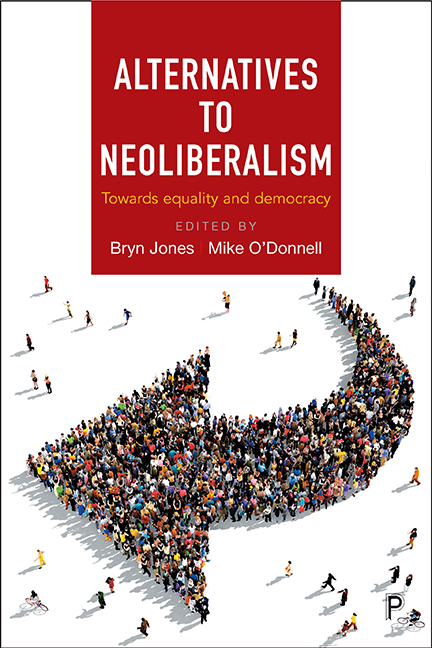Book contents
- Frontmatter
- Dedication
- Contents
- List of figures, tables and boxes
- List of abbreviations
- Notes on contributors
- Acknowledgements
- Foreword
- Editors’ preface
- Introduction: The open-market society and its opponents: an overview
- Part One Alternative paradigms and perspectives
- Part Two Reform within economic and governance restraints: pushing the boundaries
- Part Three Economic and political democracy: restoring the market-civil society balance
- Conclusion: A Brexit from neoliberalism?
- Index
three - Beyond neoliberalism, or life after capitalism? A red-green debate
Published online by Cambridge University Press: 05 April 2022
- Frontmatter
- Dedication
- Contents
- List of figures, tables and boxes
- List of abbreviations
- Notes on contributors
- Acknowledgements
- Foreword
- Editors’ preface
- Introduction: The open-market society and its opponents: an overview
- Part One Alternative paradigms and perspectives
- Part Two Reform within economic and governance restraints: pushing the boundaries
- Part Three Economic and political democracy: restoring the market-civil society balance
- Conclusion: A Brexit from neoliberalism?
- Index
Summary
Introduction
The post-war social democratic left had at its core a commitment to socioeconomic equality. At the very least this entailed a publicly provided safety-net to protect the most vulnerable in society, the sick and elderly and those hit by hard times. A legal framework securing the rights of employees (individually or collectively) to counterbalance and restrain the powers of employers, the provision of a secure and healthy place to live and universal free access to education were also indispensable parts of the vision. More contested, even then, was the extent to which the production of goods and services should be allocated either to public or private sectors. The ‘mixed economy’, in which some basic utilities and ‘natural monopolies’ remained in the public sector, while a flourishing private sector generated the profits to finance state spending was, until the 1970s, relatively uncontroversial.
Viewed in retrospect, the post-war Labour government was astonishingly successful both in implementing the necessary reforms to achieve much of this and in rendering hegemonic its vision of fundamental entitlements of citizenship. The counterattack by market fundamentalism was already under way at the time the post-war settlement was being put together (e.g. Hayek, 1944), but it took some 30 years of its ‘war of position’ and the re-emergence of destabilising class conflict for it to be able to present itself as a viable alternative. Even now, despite some 40 years of erosion and systematic attack by the entrenched advocates for ‘free markets’, it is astonishing how much resilience the values of social democracy still have. For all the continual ferreting out of ‘bad news’ stories about the NHS, no major political party yet dares to question the universal principle of ‘free at the point of need’ for basic healthcare. However, until the crash of 2008 public support for the mixed economy had morphed into tacit acceptance of successive waves of privatisation, even where the beneficiaries were the nationalised corporations of foreign governments.
However, earlier generations of socialist thinkers had a still broader vision of the ‘good life’ than the above version of social democracy. Distributive justice and the recognition of basic rights were supplemented by an alternative vision of human fulfilment.
- Type
- Chapter
- Information
- Alternatives to NeoliberalismTowards Equality and Democracy, pp. 59 - 78Publisher: Bristol University PressPrint publication year: 2017



